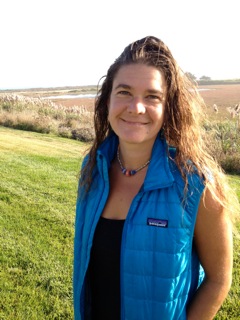Meghan Walla-Murphy
About Meghan Walla-Murphy
Meghan Walla-Murphy grew up roaming the Santa Monica Mountains in Los Angeles County. This landscape’s dry ruggedness and abundant biodiversity deeply shaped Meghan’s ethic of Respect for both ecology and human communities. She learned the destructive impact of humanity, but also how humans can be an integral part of a healthy ecosystem.
As a child and teenager she was fortunate to travel to Mexico, France, Kenya, Tanzania, and around the United States. These travels further shaped Meghan’s understanding of respect and helped her to understand the vast potential for life on this planet. Early on Meghan observed that the American lifestyle comprised only one very small perspective amongst the limitless possibilities of how one can live.
After graduating from high school she attended the University of California in Santa Cruz (UCSC) and graduated with a double major in biology and Asian history. Her education provided her the opportunity to travel to Nepal to study the effects of overgrazing in the Himalayas, work with northern elephant seals (Mirounga angustirostris) at Ano Nuevo and complete her thesis, which researched the genetic viability and fitness of California pocket gopher (Thomomys bottae) populations. Multiple field experiences and backcountry trips around California and the U.S. further enhanced the education she received at the University.
Upon graduating, Meghan moved to the Philippines to propagate native orchids on a small island of Fuga north of Luzon. While living in the Philippines, she also toured Japan with her former Japanese history professor from UCSC.
Upon returning to the U.S., Meghan was introduced to environmental and experiential education. At the age of 23, she became co-director of a 501c3 outdoor education company- the Wilderness Outdoor Leadership Foundation (WOLF)- a position she held and cultivated for the following six years. In addition to learning business and management skills, during this time she studied with herbalists, trackers, storytellers, and elders. Differing from her experience in college, Meghan was mentored by people who interacted with nature rather than researched it.
Years of managing a 501c3 taught her not only diverse and alternative education skills, but also integral business and management skills. In 2002, one of her clients offered Meghan the opportunity to revitalize a flailing middle school. Meghan and her new co-director took it upon themselves to develop a 6th, 7th, and 8th grade school that addressed the needs of the whole child- Topanga Mountain School. She created and implemented a three-year curriculum as well as trained school staff.
Incorporating what she had learned from elders, trackers and storytellers, Meghan developed a holistic program that met California’s state requirements as well as the needs of a growing creative pre-teen.
Through these years Meghan continued to hone her skills in tracking and natural history. Both endeavors took her deeply into animal behavior and ecology. Also during this time Meghan was asked by a local Los Angeles paper to write a bi-weekly column that addressed L.A. Basin natural history. This request opened up her childhood passion of writing and expanded into regular columns for three local Los Angeles papers.
Four and half years after her work began at Topanga Mountain School, Meghan divorced and decided to dive more deeply into her passions of tracking and writing. Upon selling her house and buying a pick up truck, she resumed extensive travel and apprenticed under trackers and writers around the United States, Brasil, and South Africa. In two different trips Meghan lived in South Africa for months at a time as both teacher and student. Between international travel, she also worked with Dr. James Halfpenny in Yellowstone and co-authored the book, Track Plates for Mammals.
Given the unconventional education she received after university, Meghan ironically found her way back into academics. She obtained her MFA in non-fiction writing from Lesley University in 2011, while she continued to be an environmental and educational consultant for museums, schools, and universities.
Currently, Meghan is a resident of Occidental, in northern California. Her primary work is a blend of writing and environmental conservation with an emphasis on wildlife corridors and linkages. Presently she is working with both UC Santa Barbara and several Californian conservation groups to develop citizen science programs that monitor wildlife movement across open space as well as private lands. Meghan also continues her writing endeavors, publishing essays and articles while she works on a larger book project.

